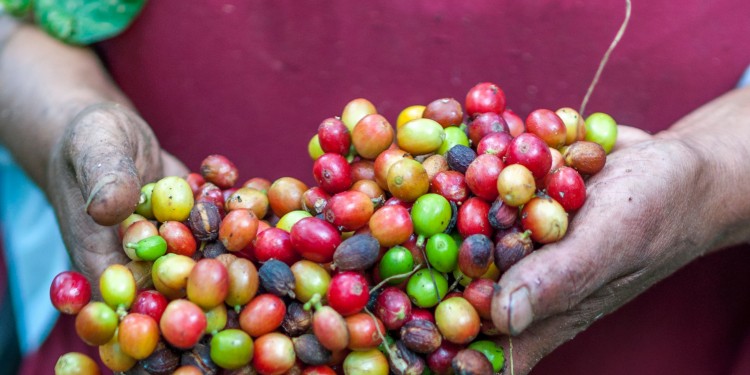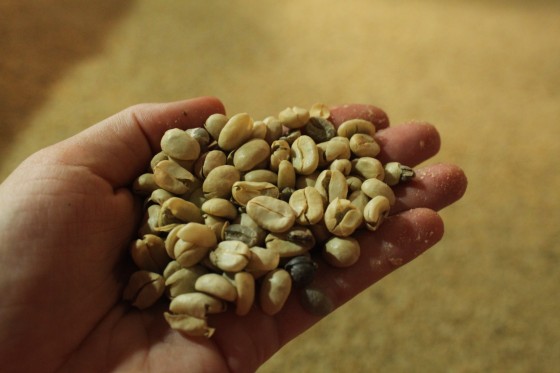
Coffee production needs clear rules
Coffee – Germany’s most popular drink – is grown by around 20 million small-scale farmers worldwide, who often live below the poverty line. Private sustainability standards, for example Rainforest Alliance or Nespresso AAA, promise consumers a fairly traded and ecologically sustainable product. Many of these standards, however, are not systematically observed – as Dr Janina Grabs reveals in her thesis at the Graduate School of Politics at the University of Münster’s Institute of Political Science. “The rapid upscaling of sustainability standards means strong market growth for certified coffee products – both among producers and in the shops,” says Grabs. “This, in turn, often leads to a more flexible definition of sustainability, a drop in prices and an incomplete implementation of sustainable production practices among the coffee farmers themselves. Sustainability standards therefore need clearer rules,” she says.

“Many farmers have to sell their coffee below its market value and cannot escape from the poverty trap. For this reason, better growing and trading conditions can help in achieving global sustainability targets,” says Grabs, who analysed the implementation of such standards in the field and in the value chain, on the basis of quantitative field data acquisition from over 1,900 coffee farmers in Honduras, Columbia and Costa Rica, as well as on the basis of interviews with more than 60 experts.
In Germany there are around 350 coffee products which carry a sustainability seal. According to a study carried out by the Forum Fairer Handel (Fairtrade Forum), coffee has a share of over 30 percent of all products fairly traded and, as such, has the largest turnover of all fairly traded products worldwide. In Germany alone, fair-traded roasted coffee has a market share of five percent. “Voluntary sustainability standards have become important political and economic instruments for binding international markets to the fundamental principles of sustainable development,” says Thomas Dietz, Professor of International Relations and Law at the Institute of Political Science at Münster University. He heads the research project “TRANSSUSTAIN”, funded by the state of North Rhine-Westphalia, which gave rise to Janina Grabs’ thesis. “There is a lot of international interest in the results of our research, because we are one of the few projects worldwide which are looking empirically at the question of how effective sustainability standards are in the global coffee value chain – and what benefits actually reach the farmers,” Dietz explains. “The results of the study reveal that the proceeds and the prices paid are too low for sustainability or social and ecological standards to be maintained in the business.

In a first step, sustainable practices can lead to increased costs, for example when safety standards have to be introduced or potential yields decrease as a result of restrictions on pesticides during a transitional phase. Fair trade tries to strengthen the farmers’ economic situation at various levels, as Dieter Overath, Managing Director of the TransFair organisation explains: “Mergers in cooperatives drive professionalisation among small-scale farmers. Management structures are improved, as is their position in negotiating contracts, training is offered, and the result is an improvement in productivity and quality. Two other aspects are especially important for fair trade: firstly, the payment of a fair trade minimum price, which is to be seen as a safety net and which covers the production costs for sustainable production; and secondly, the payment of a premium to all producers in addition to the selling price.”
However, only a few other standards offer reliable premiums which could provide such financial incentives. And fair trade cannot guarantee sales, which means that many farmers are dependent on additional support from NGOs or from the state in order to meet sustainability standards. “In my view it is imperative that private and public rules and legislation should mesh as well as they possibly can,” says Janina Grabs.
Author: Kathrin Kottke
This article was first published in the University newspaper wissen|leben, No. 3, May 2020.
